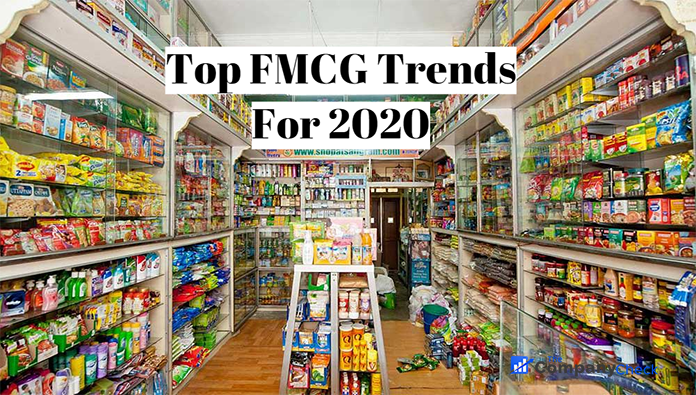Technology has been a basic driver of progress for FMCG organizations, and 2020 may see them inclining up their technological change. These organizations will focus on more prominent operational efficiencies, mainly in response to the slowing down consumption in rural areas. Retail technology platforms will lead the technology pack to give the data insights required by these enterprises to coordinate production to consumption, increase outlet coverage, and spur field groups to guarantee both satisfied retailers and shoppers.
Top FMCG Trends For 2020
Given below is a list of the basic trends which the FMCG companies are advised to follow in order to increase the productivity of their organization and witness growth in terms of revenue and sales.
A Tech-Focus will Help Boost Rural Growth
Rural Consumption has eased back down. It was growing at 1.4-1.5x of urban areas however has dropped and sometimes dragging behind urban growth. Brands that had a lower impression in the country, have posted higher development rates than their companions. For example, Nestle timed a twofold digit development last quarter.
Discouraged development has been due to slow consumption. Wholesale distributors nearby me-toos have traditionally fulfilled country needs. So brands don’t know which outlet in which town is serviced by the wholesaler. It gives the wholesaler undue advantage where he can switch brands and reliability for small advantages or decrease stock movement of a specific brand to give an upper hand to another. Brands have regularly lost market shares due to inconsistent service from their rural distributors.
Digital Solutions and retail intelligence stages place the performance of a brand squarely in its hands. Brands can digitize their salesforce as well as wholesalers to guarantee direct servicing of outlets in the rural areas. Mobile tech solutions like Bizom can assist organizations to drive growth and overcome challenges of low-speed internet connectivity, offline sync of information, and rural digitization through mobiles and cell phones. It is subsequently making rural an essential switch of growth for brands. Despite the gloom, brands expect rural consumption to bounce back by Q2 of FY2020. Mohit Malhotra, CEO of Dabur was quoted in a recent article saying, “During the second quarter of 2019-20, we have expanded our rural footprint to over 51,000 villages, up from 48,000 villages in June 2019. Riding on this expansion, rural demand continues to grow ahead of urban demand for Dabur.”
Gamification Will Come of Age
The digital world is packed with offers to lure consumers. Digital payment organizations like Paytm are fundamentally known to offer cash backs on their applications. Google Pay made monetary transactions fun by offering cashback through scratch cards. It gamified the experience for purchasers. An ever-increasing number of brands are guaranteeing repeat customers by making transactions engaging where finishing explicit tasks guarantees awards through cashback, discounts, or coupons. This is gamification.
The launch of Hershey’s Kisses brand is a brilliant illustration of an FMCG brand that used gamification to increase and enhance its market-share effectively. The brand utilized the gamification tech given by Bizom to urge their salesmen to encourage the situation of their products and increase offtakes. Instead of the deep-rooted stick and carrot approach, Hershey appealed the intensity of its business power to drive the situation and open awards for themselves.
Increase Direct Distribution Focus
Direct distribution is costly. In any case, in contrast to wholesale distribution, by taking charge of distribution, brands can guarantee development. Parle Agro, the creator of Frooti, had the option to develop reliably at 25% in the last 15 years by leveraging direct distribution. They extended their inclusion to 1.8 Mn outlets and increased product depth through a bigger portfolio of products including Appy and Appy Fizz to accomplish their objectives in record time.
For more information, visit the website of The Companycheck



